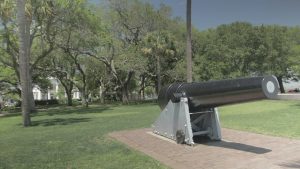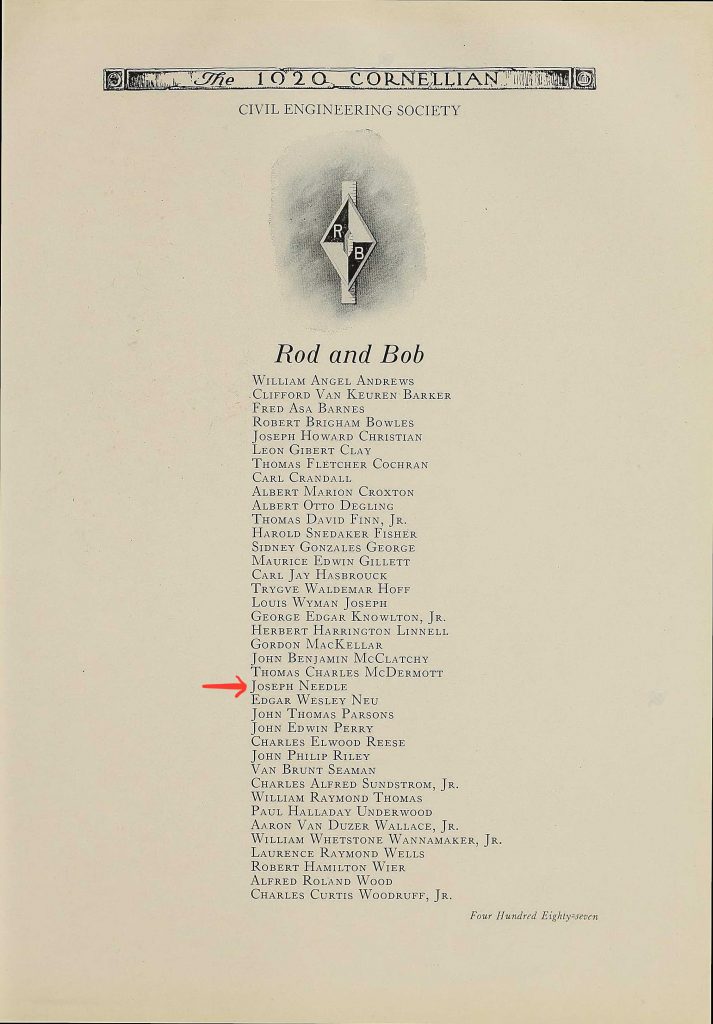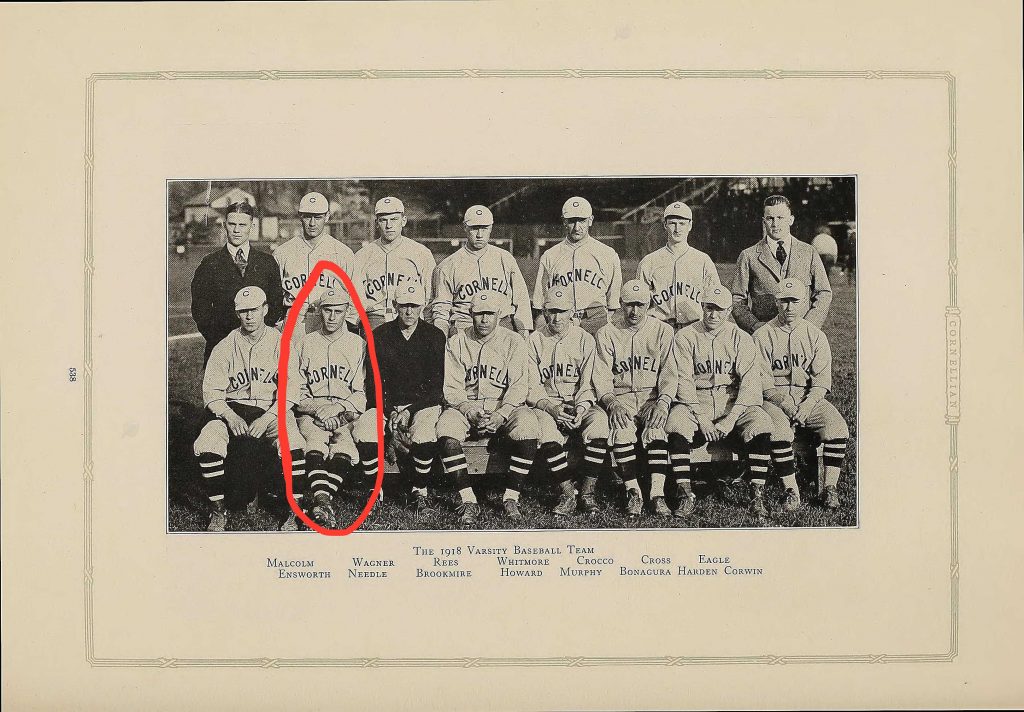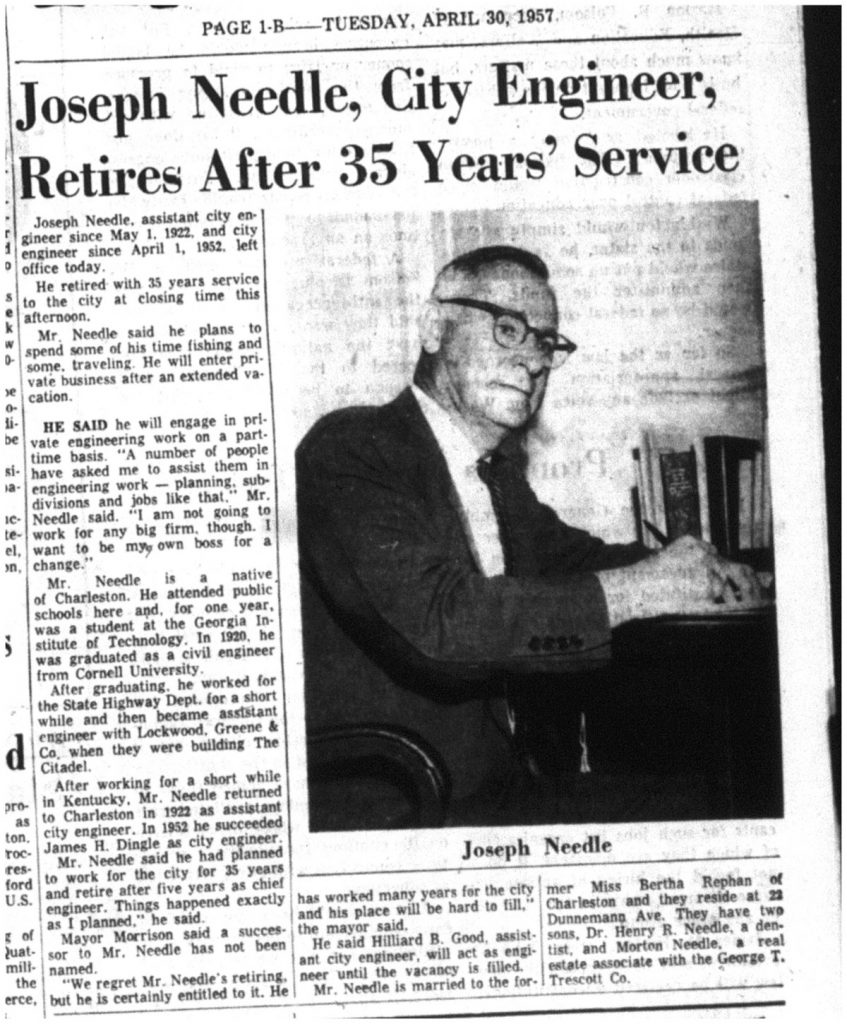The little giant and the big giant, though proportionally different, were inseparable. Whenever the little giant would get stuck, she knew that the big giant would be right there, ready to save the day. Somehow, some way, everything would always work out. As a young girl, my mom remembers all of
her grandpa, or Poppy’s, elaborate stories revolving around the adventures of the little giant and the big giant, as well as all of the trouble that they would get in together. When I asked her how the real version of the big giant compared to the one in the stories, she said, “for me, Poppy was bigger than life.”
The big giant, from my mom’s recollection, seems to have constantly been linked to her never-ending hunt for mischief. As she would tell me, “I was always into trouble with a capital T.” Typically, trouble is carried out by children looking for some type of laugh or reaction. My mom’s memories seem to say otherwise. Using his unwavering dedication to his grandchildren to her greatest advantage, my mom’s memories of her Poppy all portray him as the sidekick to the “badness” that she and her sisters would get themselves into constantly. “It was the twinkle in his eye that told us that he was thinking about something bad, that he was planning something.” When she and her sister Julie would sleep over at their grandparent’s house, they would stay up all night laughing and jumping on their beds, and instead of trying to calm their never-ending bursts of energy, she said “Poppy would laugh with us and encourage us.”
Considering that he had already retired by the time my mom was born, the big giant always had plenty of time to spend with her. One of her favorite days of the week to hang out with her Poppy, she explained, was on Sunday. My mom’s most vivid memories of her Sunday playdates are the days when her Poppy would sneak her out of Sunday School and take her to the zoo. While there, the two of them would spend the afternoon feeding ducks, and my mom would inhale her Cracker Jacks and ice cold Coca Cola. As the day came to an end, the big giant and the little giant would leave the zoo, pick up the rest of the sisters and head over to KFC for some fried chicken (with extra french fries, of course). The adventure would not end here, though. As my mom recalls, the night would be capped off with a visit to the drug store, where she and her sisters would run inside and pick out their candies of choice. “Julie and I knew what we wanted before we even walked in, but poor Sally would always cry because she couldn’t decide what to get from all of the options.” While the big giant helped his teary-eyed granddaughter select the perfect candy, my mom would already be devouring her candy necklace, leaving her “sticky as can be.”

On other days, the big giant would take his granddaughters to the Battery, a defensive seawall in downtown Charleston built during the Civil War, where they would climb on the massive war cannons and chase each other around. Her Uncle Hermy, Joseph’s brother, and his kids would come as well, never failing to bring their two massive Great Danes to join in on the fun. As everything else I’ve heard about my great grandfather suggests, these trips would be incomplete without some sort of treat. Fortunately for my mom and her sisters, the snow cone truck was right around the corner. “The one catch,” she told me, “was that I didn’t let myself eat the cone until he mashed it down with his big thumb and all the juice filled at the top.” A small gesture, yes, but a lasting one indeed.
In terms of his philanthropic nature, the big giant’s generosity extended much farther than just buying presents. He was religious in the sense that he spoke to his granddaughters about God, and often times, he went as far as to convince them that he had the ability to relay their messages over to Him. “He had a direct line to God and asked if we needed to tell Him anything. I’m sure it was about Hannukah presents, we were bad, but he was so sweet and loved us, which was the most touching part of all.” The feeling of comfort and belonging was arguably the big giant’s greatest gift to his family, providing them with a sense of security that assured them that he would always be there.


Before he became the big giant, Joseph Needle was a student at Cornell University, where he was not only involved in the Civil Engineering Society, but also a four-year pitcher on the baseball team. His success in college translated over to his 35 year service to the city of Charleston as a Civil Engineer, where he spent his final years on the force as the premier City Engineer. These years of work, though before my mother’s time, were highly praised and appreciated. After his retirement in 1957, the city posted an article commemorating his accomplishments and sending him on his way.

As if the big giant couldn’t have gotten any bigger in the eyes of his granddaughters, the story of his youth revealed that he had always been destined for greatness, especially in terms of his wits. Joseph Needle’s intelligence was apparent to my mom from the very beginning of her life. Aside from his effortless ability of creating elaborate stories on the spot, he had quite the knack for crossword puzzles and word jumbles. She remembers watching him complete both of them with ease every morning in the newspapers, never pausing to write down any extra words.
The most impressive aspect of the big giant’s success is the fact that the majority of his work years took place during a very dark time in American history, the Great Depression. Fortunate enough to have held a well-paying job, the big giant was in prime position to support his entire family. Born to Russian immigrants, he grew up in a home dedicated to the ideas of hard work and determination. Jacob, his father, ran a clothing store, where he saved up enough money to send his son to college and properly set him up for a future career. When the Great Depression hit, the big giant had already established himself as the Assistant City Engineer of Charleston, a place that in 1931, was on the verge of bankruptcy. South Carolina as a whole had 17 counties with unemployment rates greater than 30%, and from 1929-1933, the per capita income throughout the entire state dropped from $261 to $151. When all else failed, “city trucks [in Charleston] transported the unemployed to local farms on the outskirts of the city, where they might pick vegetables that farmers were willing to donate” (Mielnik). Additionally, families had trouble affording any basic foods, making meals more repetitive and less enjoyable. The big giant, on the other hand, had been blessed with a different type of life, never taking what he had for granted. Years later, this attitude would be displayed in small ways around his granddaughters. Though these memories took place thirty years after the Depression ended, my mom vividly remembers family dinners when she would observe the big giant mashing his plate of beef, rice and peas all together into “one big mush ball.” After giggling with her sisters, he would look at them and say, “well, it all goes down the same pipe.” This gesture, of course, was more than enough to convince my mom to join in on the fun, and following a consistent pattern in their relationship, she admitted “I wanted to mix mine up just like him.” Moments like these, though not obvious at the time, were reflections of a stressful era that the big giant had lived through, and a solid indication of the appreciative morals that he had learned from his parents during a time of economic struggle.
Even the strongest of heroes eventually meet their ends, a concept that my mom understands all too well. When Joseph began to get sick, his constant hospital visits enveloped my mom’s entire existence. This time, she told herself, the little giant would save the big giant: “I just remember thinking, if he was going to be sick, I was going to be sick. I just wanted to go to the hospital and be in another bed next to him.” Her Poppy, knowing all too well what was to come, tried to comfort my mother as best as he could, telling her “some day, I’m gonna build a wing at Roper Hospital and you’ll be able to go up there whenever you want.” In the end, Father Time did His bidding, leaving my mother devastated. Following his passing, all she could think of were the times of joy she was able to share with her Poppy. “It was wildness and fun, fun and wildness. It was all happy.”
The big giant gave life to the entire Needle family in a way that would never be replicated again. Choked up at the idea of talking about him in depth, the little giant, my mother, couldn’t help but conclude her tale with one, final thought. All of these stories, she realized, only made her further understand how special her father, my Poppy, was to our family. “You can see where daddy got it from,” she told me. Before this moment, I had never considered how my Poppy, her father, had played such a similar role in my life. Just as my mother had grown up with a loving, mischievous big giant until she was sixteen years old, so had I. Memories of my Poppy began playing from the back of my mind, mirroring almost identical stories as to those that my mom had just disclosed to me from her childhood. Thinking about Poppy’s infamous twinkling grin made me laugh to myself, reminding me of the “badness” that I had always known him to have. Although there would never be another Joseph Needle, I could be rest assured that “Poppy, the big giant” would forever live on.
Works Cited
Brickman, Joseph Myer, and Susan Needle Brickman . “‘Poppy.’” 29 Mar. 2018.
Meyers, Heather. “The Great Depression in South Carolina.” Teaching American History in South Carolina, Midlands Institute , 2009, digital.scetv.org/teachingAmerhistory/lessons/greatdepressioninsc.html.
Mielnik, Tara. “Depression and the New Deal in South Carolina .” New Deal, New Landscape: The Civilian Conservation Corps and South Carolina’s State Parks. https://www.sc.edu/uscpress/books/2011/3984x.pdf